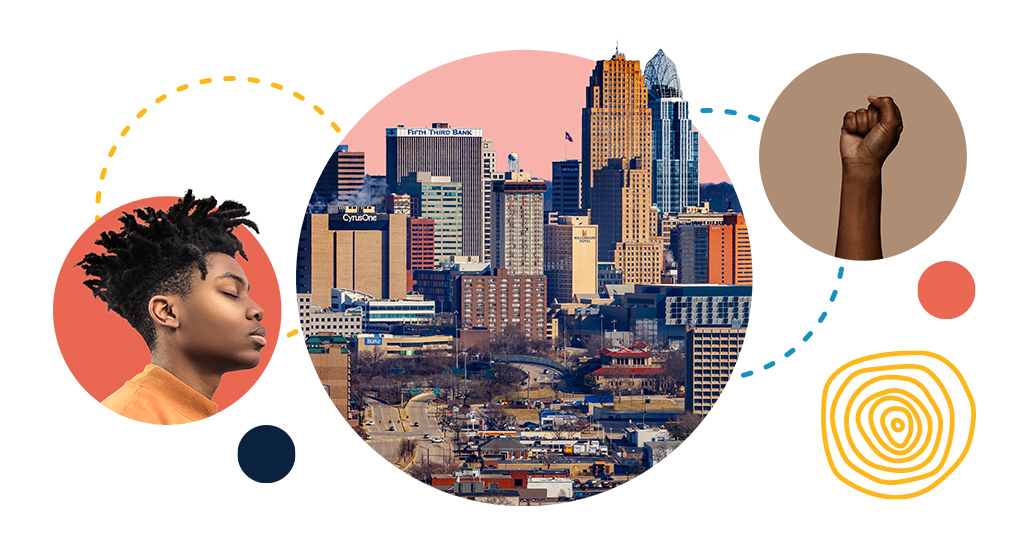 Written by Katheryn Toren-Jones, Branch Manager, Norwood Branch
Written by Katheryn Toren-Jones, Branch Manager, Norwood Branch
Ever wonder how the past has shaped our present? Not sure what systemic racism means? Would you like to begin having a dialog about current events but don’t know where to start? Then our three-part series, based on the book Race and the City: Work, Community, and Protest in Cincinnati, 1820-1970, is for you.
Using chapters from this remarkable book you can listen to on YouTube to educate us, and community activist Melanie Moon to inspire us, the Library is offering a safe and open forum for growth and for sharing personal experiences.
You can watch our first event with the YouTube link below. Then join us for conversations on Feb. 24 and March 31.
Labor, Work, and Job Opportunity
Our first event, held Jan. 27, focused on the history of labor, work, and job opportunities for Black Cincinnatians during the 19th century. We had the honor of having the chapter author, Dr. Nancy Bertuax, with us to begin the program. Dr. Bertuax shared some personal stories about why she was included as one of the authors of the book and her interest in the subject. She credits her experiences as a student at Princeton High School here in Cincinnati with changing the course of her life. Dr. Bertaux attended Princeton during the time that several high schools were merging and was a founding member of the “Princeton Interracial Club.” The focus of her current research is environmental justice.
During each event, a “Chapter Champion” guides the participants through the key points of the chapter. I served in this capacity last month and gained so much by doing so. After presenting the information and listening to commentary by Ms. Moon, we opened the program up for comments and conversation. What a great group of people! There were 28 attendees, many of whom shared personal stories. We talked about everything from collective misunderstandings and re-entering the workforce after incarceration, to Affirmative Action and just about everything in between.
Sharing Experiences
One participant named Jill told us that the company she works for is starting a diversity, equity and inclusion initiative. The Human Resources department contacted her to let her know that they are giving her a raise to make her salary more comparable to her peers. Even though her qualifications, job performance, and experience were strong, they admitted that upon being hired it was at a lesser pay level because she was a Black woman.
Another participant named Claire is fresh out of college and starting a career at a Cincinnati-area global cooperation. She feels very supported and is included in a leadership program with several other BIPOC (Black, Indigenous, People of Color) young people.
She wanted to share her optimism about her own employment, but also to bring to light that there is work that still needs to be done. One of Claire’s colleagues has a daughter who is a graduate of a HBCU (Historically Black Colleges and Universities). She has had a vastly different experience as the only woman of color in engineering at her place of employment. She reports thinking of quitting every day because she doesn’t have the support of a diverse team. “It’s so disheartening because there is just no representation in her field.”
Continuing the Conversation
Reading about the way commerce and industry developed in the early days of our city, we can see a picture emerge. A picture that shows a stark contrast between the jobs available to white workers and the jobs available to Black workers. The inequities caused by both institutional and informal racism kept Black workers at the bottom of the occupational ladder. And it still persists today. It is important to engage in conversations so we can better understand the barriers that continue to affect our community.
By understanding Cincinnati’s past, we can more fully understand Cincinnati’s present. And together, we can work for a more just and equitable future in our city.
Register for the final two installments of our Race and the City: Critical Conversations virtual program on our events page.


Add a comment to: Race and the City: Critical Conversations About the Roots of Systemic Racism in Cincinnati